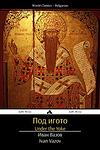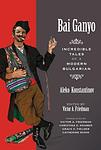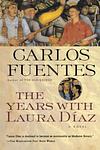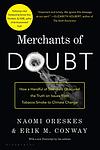The Greatest Bulgarian, Mexican Books of All Time
Click to learn how this list is calculated.
This list represents a comprehensive and trusted collection of the greatest books. Developed through a specialized algorithm, it brings together 300 'best of' book lists to form a definitive guide to the world's most acclaimed books. For those interested in how these books are chosen, additional details can be found on the rankings page.
Genres
Countries
Date Range
Reading Statistics
Click the button below to see how many of these books you've read!
Download
If you're interested in downloading this list as a CSV file for use in a spreadsheet application, you can easily do so by clicking the button below. Please note that to ensure a manageable file size and faster download, the CSV will include details for only the first 500 books.
Download-
1. Pedro Páramo by Juan Rulfo
This novel transports readers to the ghost town of Comala, where the protagonist, Juan Preciado, ventures in search of his estranged father, Pedro Páramo. Upon arrival, he encounters a realm where the living and the dead coexist, and through fragmented narratives and spectral encounters, the story of Pedro Páramo's life, his love, tyranny, and the curses that plague the town unfolds. The novel's innovative structure, blending memory and reality, has cemented its status as a pioneering work of magical realism, offering a haunting exploration of power, guilt, and the inescapable echoes of the past.
-
2. Like Water For Chocolate by Laura Esquivel
This novel is a romantic, magical realism tale set in turn-of-the-century Mexico. It chronicles the life of Tita, the youngest daughter in a traditional Mexican family, who is forbidden to marry due to a family custom that mandates the youngest daughter must care for her mother until death. Tita falls in love with Pedro, who in turn marries her elder sister to stay close to her. The story is uniquely structured around the twelve months of the year, each beginning with a traditional Mexican recipe. The protagonist's emotions become infused with her cooking, leading to strange effects on those who consume her culinary creations.
-
3. The Death of Artemio Cruz by Carlos Fuentes
The novel revolves around the life of a self-centered Mexican media mogul, Artemio Cruz, who is on his deathbed. As he reflects on his past, the narrative shifts between first, second, and third person perspectives, exploring different stages of Cruz's life from his impoverished childhood, his participation in the Mexican Revolution, his ruthless pursuit of power, and his eventual downfall. The book is a critique of the corruption and moral decay in Mexican society following the Revolution.
-
4. Auto Da Fé by Elias Canetti
"Auto Da Fé" is a story about Peter Kien, a renowned sinologist who is obsessed with his library of books. His life takes a turn when he marries his illiterate housekeeper, Therese, who is only interested in his wealth. After a series of mishaps, Kien is tricked out of his home and ends up living on the streets. The novel explores themes of obsession, intellectualism, and the destructive power of the mind.
-
5. The Burning Plain and Other Stories by Juan Rulfo
"The Burning Plain and Other Stories" is a collection of short narratives set in the harsh rural areas of Mexico, depicting the brutal realities of peasant life. The stories are filled with characters who are haunted by their past, living in extreme poverty, and often meeting violent ends. The book is renowned for its stark, realistic portrayal of life and its exploration of the human capacity for hope and survival in the face of despair.
-
6. The Underdogs by Mariano Azuela
"The Underdogs" is a novel set during the Mexican Revolution, depicting the conflict from the perspective of the peasants who fought in it. The story follows the journey of a poor, illiterate Indian named Demetrio Macias, who becomes a reluctant leader in the rebellion against the federal government. The narrative explores the brutality and chaos of war, the corruption of power, and the often futile nature of rebellion, painting a grim picture of the human cost of revolution.
-
7. The Labyrinth of Solitude by Octavio Paz
This book is a profound and vivid exploration of Mexico's character, culture, and identity. The author delves into Mexico's history, politics, and psyche, examining the country's deep solitude and its impact on the national character. The book provides a comprehensive analysis of Mexican society, its myths, symbols, and rituals, offering a deep understanding of the Mexican people's unique way of perceiving the world. It also discusses the influence of the United States on Mexico and the complex relationship between the two countries.
-
8. Kafka's Other Trial by Elias Canetti
This book is a detailed examination and interpretation of the correspondence between a renowned author and his fiancée, Felice Bauer. The author uses these letters to analyze the writer's psyche, his relationships, and his work. The book provides a unique insight into the author's life and the influence of his engagement on his writing, particularly his novel "The Trial". The author's struggle between his commitment to writing and his relationship with Felice forms the central theme of the book.
-
9. Under the Yoke by Ivan Vazov
"Under the Yoke" is a historical novel set during the April Uprising in Bulgaria in 1876 against the Ottoman Empire. It presents a vivid portrayal of the events leading up to the uprising, the rebellion itself, and its tragic aftermath, through the eyes of the inhabitants of a small Bulgarian town. The novel explores themes of patriotism, sacrifice, love, and the struggle for freedom, providing a detailed and realistic depiction of the period.
-
10. Cartucho And My Mother's Hands by Nellie Campobello
"Cartucho And My Mother's Hands" is a poignant collection of vignettes that offer a child's perspective on the Mexican Revolution. Through a series of short, vivid sketches, the narrative captures the brutality and humanity of the conflict as witnessed by the young protagonist. The work is both a personal memoir and a tribute to the resilience of women, particularly the author's mother, whose strength and tenderness are symbolized by her hands. The book blends the innocence of childhood with the harsh realities of war, providing a unique and emotionally resonant account of historical events that shaped Mexico's national identity.
-
11. Bai Ganyo by Aleko Konstantinov
"Bai Ganyo" is a satirical novel that follows the eponymous protagonist, a comically boorish Bulgarian rose-oil merchant, as he travels through various European cities. The book humorously critiques the cultural misunderstandings and faux pas that Bai Ganyo commits, which serve as a metaphor for the broader social and political foibles of Bulgarians during the post-liberation period from Ottoman rule. Through a series of vignettes, the protagonist's adventures expose the clash between traditional Bulgarian ways and modern European society, ultimately offering a sharp commentary on the challenges of cultural integration and the preservation of national identity in the face of globalization.
-
12. A Ballad for Georg Henig by Viktor Paskov
"A Ballad for Georg Henig" is a narrative that explores the life of a Jewish craftsman and violin maker, Georg Henig, in the 18th century. The story is set in Bulgaria and delves into the historical events and cultural dynamics of the time, including the Ottoman rule and the social status of Jews. The protagonist's life is filled with love, loss, and the quest for artistic perfection, all against the backdrop of a society marked by religious and ethnic tensions.
-
13. Here's to You, Jesusa! by Elena Poniatowska
This novel tells the story of Jesusa, a woman who experiences the Mexican Revolution, the Cristero War, and the development of the Institutional Revolutionary Party. Through her eyes, readers witness the struggles of poverty, the brutality of war, and the realities of a woman's life in early 20th century Mexico. The protagonist's life is filled with hardship, but she remains resilient, embodying the spirit of the Mexican people during a turbulent time in history.
-
14. Natural Novel by Georgi Gospodinov
"Natural Novel" is a thought-provoking and imaginative work that seamlessly weaves together various narratives and perspectives. The book explores the concept of storytelling and its power to shape our understanding of reality. Through a blend of fiction, memoir, and philosophical musings, the author delves into the complexities of human existence, the interconnectedness of life, and the search for meaning in a world filled with both beauty and tragedy. With its poetic prose and profound insights, "Natural Novel" invites readers to contemplate the boundaries between truth and fiction, ultimately challenging conventional notions of storytelling.
-
15. Terra Nostra by Carlos Fuentes
This sprawling, complex novel is a rich tapestry of historical, philosophical, and literary references that explores the identity and culture of Latin America through a fantastical lens. Set primarily in 16th-century Spain during the reign of Philip II, the narrative weaves together the lives of historical figures and fictional characters, blending reality with myth and time travel. The story delves into themes of creation and destruction, the cyclical nature of history, and the quest for a utopian society, all while examining the consequences of colonialism and the search for a Latin American identity that reconciles its indigenous, African, and European heritage. The novel's intricate structure and dense prose challenge the reader to consider the past's impact on the present and future of a region with a tumultuous history.
-
16. The Voices of Marrakesh: A Record of a Visit by Elias Canetti
This book is a travelogue that captures the author's experiences and observations during a visit to Marrakesh, Morocco. The author vividly portrays the city's vibrant culture, bustling markets, and unique characters, giving readers a glimpse into the everyday life of Marrakesh. The book also explores deeper themes such as the clash between tradition and modernity, and the power dynamics between the city's various social classes.
-
17. The Nine Guardians by Rosario Castellanos
"The Nine Guardians" is a poignant novel set in the 1930s in Chiapas, Mexico, during the time of agrarian reforms under President Lázaro Cárdenas. Narrated from the perspective of a young girl from a landowning family, the story explores the profound social and cultural upheavals faced by both the indigenous people and the ruling class as land is redistributed. Through her eyes, readers experience the clash of cultures and the violent struggles over land rights, witnessing the impact of political change on personal and familial relationships. The novel delves deeply into themes of power, race, and identity, providing a rich, emotional, and historically grounded narrative.
-
18. The Years with Laura Diaz by Carlos Fuentes
"The Years with Laura Diaz" is a historical novel that centers around the life of a woman named Laura Diaz, a member of the Mexican upper class. The book explores the political and social changes in Mexico throughout the 20th century, as seen through Laura's eyes. Her journey includes a loveless marriage, a passionate affair, and a career as a photographer during the Mexican Revolution. The story weaves together personal, political, and cultural threads, creating a rich tapestry of Mexican history and the indomitable spirit of its women.
-
19. Time Of Parting by Anton Donchev
The novel is a historical drama set in the 17th century in the Rhodope Mountains, exploring the cultural and religious conflict between the Christian Bulgarians and the Ottoman Empire. It follows the story of a Bulgarian village facing the threat of Islamization, as the Ottoman authorities impose a conversion campaign. The narrative delves into the choices and struggles of the villagers, particularly the character of the village leader, who must navigate between resistance and survival. The book examines themes of identity, faith, and the complexities of coexistence during a time of oppressive rule and societal upheaval.
-
20. Tobacco by Dimitar Dimov
The book in question is a historical novel set in the early 20th century, exploring the lives of characters involved in the tobacco industry in Bulgaria. It delves into the personal and political turmoil of the time, focusing on the struggles of the working class and the manipulations of the wealthy elite. The narrative intertwines love, betrayal, and ambition, as it portrays the harsh realities of labor exploitation and the social upheavals leading up to World War II. Through its vivid characters and rich descriptions, the novel offers a critical look at the impact of capitalism and the quest for power on individuals and society.
-
21. The Iron Candlestick by Dimitar Talev
The book is a historical novel set in the early 20th century, focusing on the struggles of the Bulgarian people under Ottoman rule. It follows the life of a young Bulgarian boy from his childhood to his involvement in the national liberation movement. The narrative weaves personal and political threads, depicting the boy's growth amidst the backdrop of cultural oppression, resistance, and the quest for national identity. The story is a poignant exploration of the human spirit and the fight for freedom, showcasing the resilience of a community striving to preserve its heritage and autonomy against the odds.
-
22. Osadeni Dushi by Dimitar Dimov
The novel is a poignant exploration of the human condition, set against the backdrop of a tuberculosis sanatorium in the mountains of pre-World War II Spain. It delves into the lives of the patients and staff within the sanatorium, weaving a complex tapestry of love, betrayal, and philosophical introspection. The narrative focuses on the intense and tragic love affair between a disenchanted monk and a passionate, free-spirited woman, both seeking meaning and redemption amidst the despair of their illness. Through their story, the novel examines themes of morality, existential anguish, and the struggle for spiritual and emotional liberation.
-
23. Extracts From Notes On The Bulgarian Uprisings by Zahari Stoyanov
The book is a seminal historical account that provides a detailed chronicle of the Bulgarian uprisings against Ottoman rule in the 19th century. Through a compilation of personal observations, interviews, and documents, the narrative vividly portrays the struggles, sacrifices, and heroism of the Bulgarian revolutionaries. It serves as both a tribute to the national liberation movement and a meticulous record of the events leading up to the eventual liberation of Bulgaria, offering an invaluable perspective on the country's fight for independence and the broader context of Balkan history during this tumultuous period.
-
24. The Bells Of Prespa by Dimitar Talev
The novel is a historical saga set in the early 20th century, focusing on the lives and struggles of the Macedonian people under Ottoman rule. It weaves a rich tapestry of characters, both fictional and real, as they navigate the complexities of national identity, cultural heritage, and political upheaval. The narrative delves into the personal and collective challenges faced by the inhabitants of the Prespa region, highlighting their resilience and the impact of historical events on their daily lives. Through the symbolic resonance of the bells, the story captures the essence of a community's enduring spirit amidst the tides of change and the quest for freedom and self-determination.
-
25. Антихрист by Emilian Stanev
The book in question is a historical novel that delves into the turbulent times of the Second Bulgarian Empire, focusing on the life of a fictional anti-hero who embodies the contradictions and struggles of his era. Set against the backdrop of political upheaval and religious conflict, the protagonist's journey is marked by his quest for power and his complex relationship with morality, faith, and his own identity. As he navigates a world rife with betrayal and intrigue, the novel explores themes of ambition, human nature, and the societal forces that shape individuals during times of crisis.
Reading Statistics
Click the button below to see how many of these books you've read!
Download
If you're interested in downloading this list as a CSV file for use in a spreadsheet application, you can easily do so by clicking the button below. Please note that to ensure a manageable file size and faster download, the CSV will include details for only the first 500 books.
Download

















